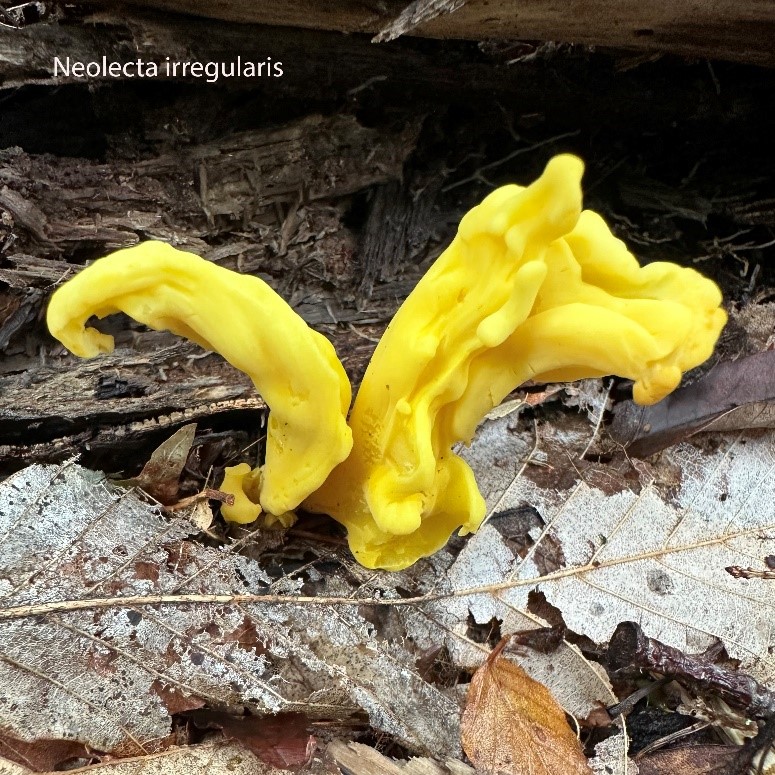By Roger Rittmaster
October 15, 2023
This past week I had the privilege of attending a 3-day workshop on mushroom identification at Eagle Hill Institute (www.eaglehill.us) in Steuben, Maine. I could regale you with scores of mushroom photos but would rather tell you about this amazing place for natural history education that most Mainers don’t know exists.
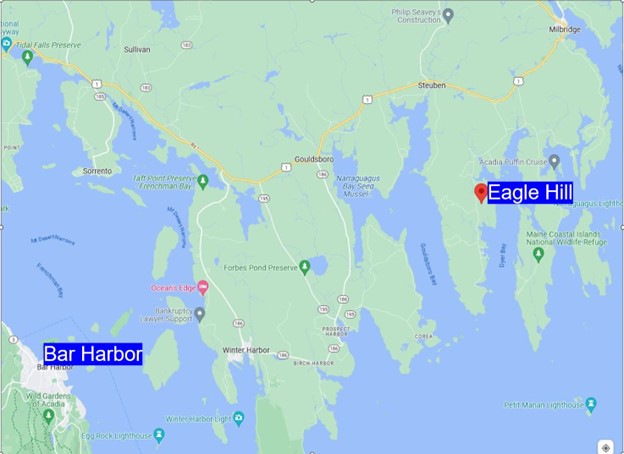
Eagle Hill Institute was founded in 1981 by the Lotze family and began hosting natural history classes in 1987, once a classroom, lodging, library, dining facility and lecture room were built. It started as a biological research station but has since morphed into a teaching institution and much more.
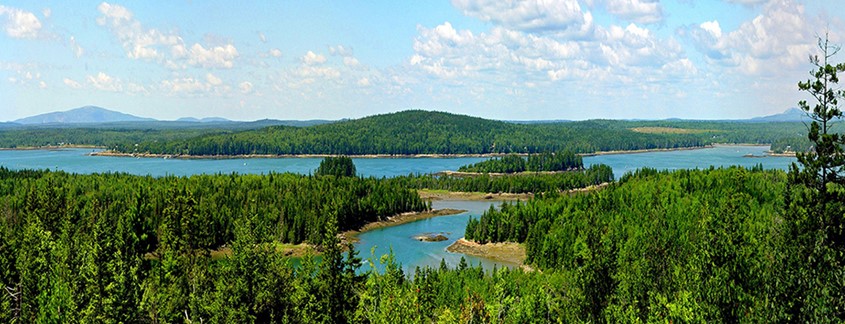
View of Eagle Hill from Petit Manan National Wildlife Refuge looking west with Mount Desert Island in the background on the left
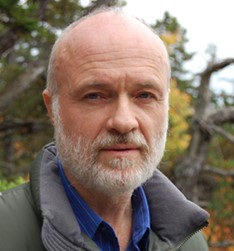
Joerg-Henner Lotze has been the Director of Eagle Hill Institute since its founding and has spent most of his life leading and expanding the mission of the Institute.
Eagle Hill attracts leading scientists and educators each summer to teach 5-day workshops on a large variety of natural history subjects. This summer, for example, there were courses on lichens, seaweeds, mosses, native bees, grasses and sedges, mushrooms, moths, ferns, bird banding, and some even more esoteric subjects. One of the world’s experts taught a course on Sphagnum mosses which filled up almost as soon as it was announced. Both novice and experienced students come from all over the United States and Canada to learn from these teachers. Typically, there are field trips in the morning with the afternoons and evenings reserved for lab work. Relevant lectures are interspersed throughout the week. Often on Wednesday evenings one of the instructors gives a public lecture followed by a buffet dinner. Since the start of the Covid pandemic, Eagle Hill has also hosted many online courses that have been so successful that they have continued even as in-person workshops have restarted.
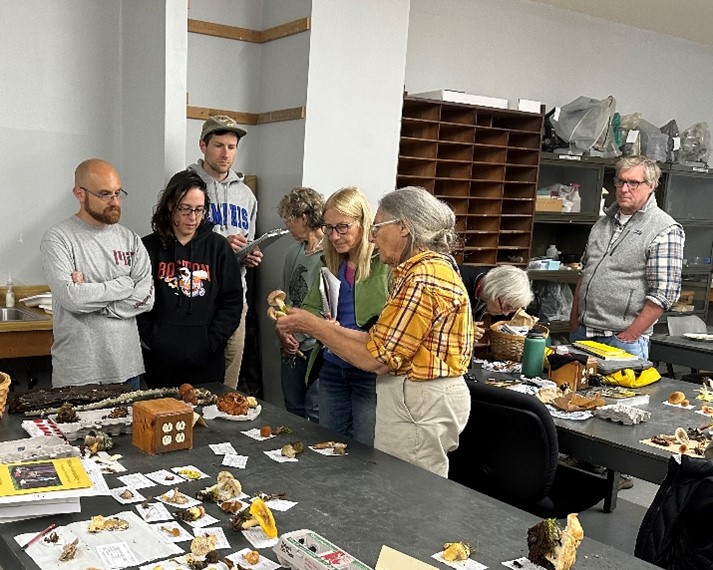
Michaeline Mulvey, one of our teachers this past week and President of the Maine Mycological Society, demonstrates the fine points of mushroom identification with students. The laboratory is fully equipped with benches, dissecting and compound microscopes, and other equipment for studying plants and animals. The course was co-led by Dr. David Porter, emeritus professor of mycology at University of Georgia.
Thanks to the generosity of its alumni, Eagle Hill has an excellent natural history and art history library with over 10,000 books:

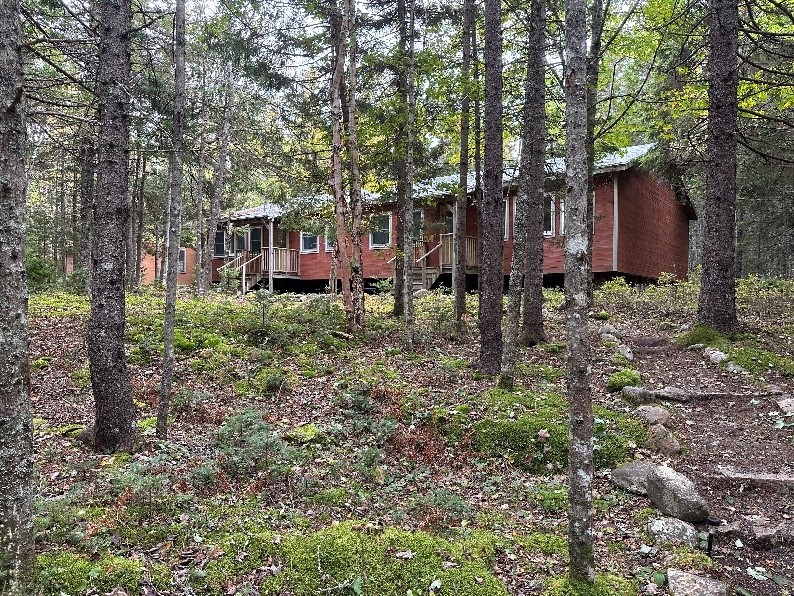
Lodging consists of basic single and double rooms in dorm-like accommodations tucked throughout the Eagle Hill campus.
Most of the Eagle Hill property has been left in its natural state of mixed deciduous and coniferous forests. A well-maintained trail system criscrosses the property.
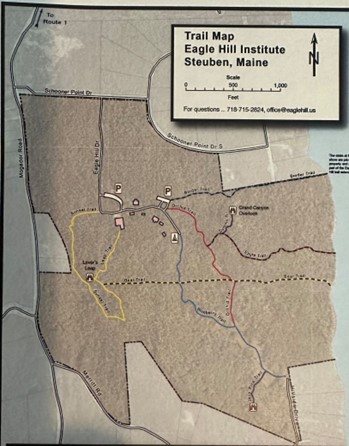
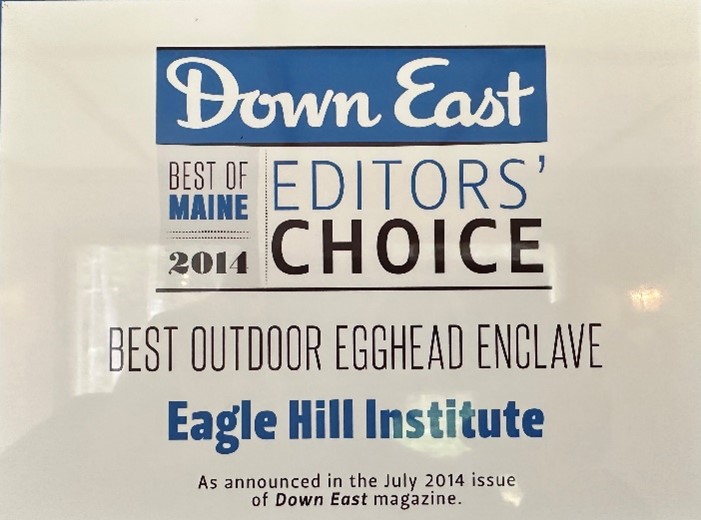
In celebration of its unique place in Maine’s educational offerings, Eagle Hill was given an Editors’ Choice Best of Maine Award by Down East magazine.
I would be remiss if I didn’t mention some of the other parts of the Eagle Hill Institute. Each year Eagle Hill organizes the Northeast Natural History Conference, taking place next year in Albany, NY from April 19-21. It publishes eight journals, including Northeastern Naturalist and Southeastern Naturalist. Its latest publication is the Journal of North American Bat Research, first published last week (who knew there were enough bat researchers for a journal?!). Throughout the year, Eagle Hill hosts a series of classical music and jazz concerts, followed by dinner at Eagle Hill’s Aerie Restaurant. Finally, Joerg Lotze has an excellent and growing collection of American art and sculpture on display at Eagle Hill.
And for those of you who would have preferred that I stuck to mushrooms, here’s one of my favorites from last week.
